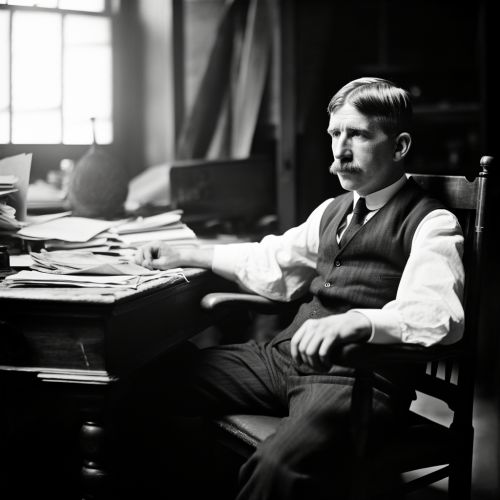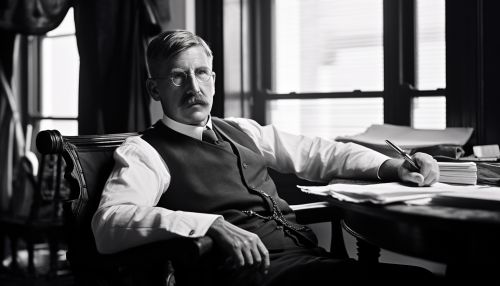John Dewey
Early Life
John Dewey was born on October 20, 1859, in Burlington, Vermont. He was the third of four sons born to Archibald Sprague Dewey and Lucina Artemisia Rich Dewey. His father, a local merchant, and his mother, a devoutly religious woman, instilled in Dewey a strong work ethic and a moral compass that would guide him throughout his life.
Education
Dewey began his formal education at the age of five, attending the local public school in Burlington. He showed an early aptitude for learning and was particularly interested in philosophy and psychology. In 1875, Dewey enrolled at the University of Vermont, where he excelled in his studies and graduated in 1879.
Career
After graduation, Dewey began his career as a schoolteacher in a small town in Pennsylvania. However, he quickly realized that his true passion lay in philosophy and education theory. He returned to the University of Vermont to pursue a master's degree in philosophy, which he completed in 1882.
In 1884, Dewey was appointed as a professor of philosophy at the University of Michigan. During his tenure, he developed his ideas on pragmatism and progressive education, which would later form the basis of his philosophical and educational theories.
In 1894, Dewey moved to the University of Chicago, where he founded the university's Laboratory School. Here, he was able to put his theories of progressive education into practice, emphasizing learning through doing and the importance of the social and emotional development of students.
In 1904, Dewey joined the faculty of Columbia University in New York City, where he would remain until his retirement in 1930. At Columbia, Dewey continued to refine his theories and publish extensively on philosophy, education, and social reform.
Philosophical and Educational Theories
Dewey's philosophical and educational theories are rooted in the philosophical tradition of pragmatism. Pragmatism, as Dewey understood it, is a philosophy that emphasizes practical consequences and real-world applications as the criteria for determining truth and value.
Dewey's philosophy of education, often referred to as progressive education, was a radical departure from the traditional, authoritarian model of education prevalent in his time. He believed that education should be child-centered, with the curriculum based on the interests and needs of the individual child. He also emphasized the importance of learning through doing, arguing that knowledge is not something that is passively received, but actively constructed by the learner.
Legacy
Dewey's ideas have had a profound impact on education in the United States and around the world. His theories of progressive education have influenced educational policy and practice, and his philosophical writings continue to be studied and debated by scholars in a variety of disciplines.


